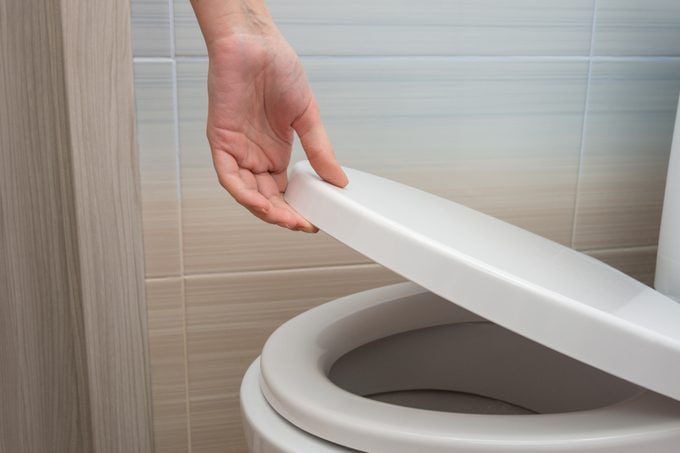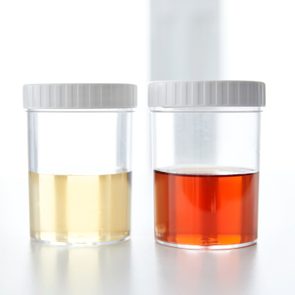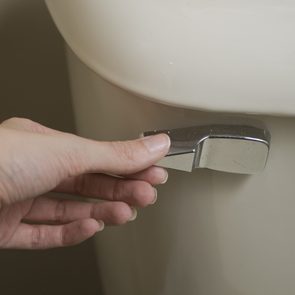What It Means if You Have Cloudy Urine
Updated: Mar. 30, 2022
Does your pee look cloudy or murky? Chances are it's nothing to worry about, but cloudy urine could be a sign of a treatable condition.
What cloudy urine means
Cloudy urine often comes and goes without any obvious cause or reason for concern.
“Two-thirds of the time, we don’t diagnose why you have cloudy urine,” says Zeynep Gul, MD, a urologist at the University of Pittsburgh Medical Center.
You might have other symptoms that accompany persistent cloudy urine that could help identify the cause. So don’t be surprised if your doctor asks you about any other symptoms happening at the same time.
However, the only way to know for sure is to have your urine analyzed under a microscope, according to Elizabeth Kavaler, MD, a urologist at Lenox Hill Hospital, in New York City and author of A Seat on the Aisle, Please!: The Essential Guide to Urinary Tract Problems in Women.
Here are some reasons your urine might be cloudy.
Urinary tract infections
Urinary tract infections or UTIs, usually caused by E. coli bacteria, are among the most common infections in women.
The white blood cells that collect to fight infection can contribute to cloudy urine, says Dr. Kavaler.
Other common signs of a UTI could include an urgent need to pee right away and painful burning while you urinate.
Antibiotics easily treat most UTIs, but pregnant women who develop these infections need to be extra careful as they can raise the risk for preterm birth, among other complications.
Sexually transmitted diseases
Chlamydia and other sexually transmitted diseases (STDs) can also cause cloudy urine, says Dr. Kavaler.
This is true for both men and women.
As with UTIs, increased production of infection-fighting white blood cells can cloud the urine.
Often chlamydia, which is caused by a type of bacteria called Chlamydia trachomatis, causes no symptoms.
However, when it does, they might include pain when you pee, discharge from the genital area or anus, genital itching, and pain in your lower abdomen.
(Read about these peeing facts you never knew.)

Kidney and bladder stones
Cloudy urine can also indicate high levels of compounds called phosphates which, in turn, may be related to kidney stones, says Dr. Gul.
Kidney stones are hard masses formed when chemicals in the urine clump together to form crystals.
Sometimes, the crystals stick together and grow too big to be excreted in your urine. That’s when they can lodge in your kidney or urinary tract, causing blockages and intense pain as well as cloudy, frothy, or foamy urine.
A good way to prevent kidney stones is to drink a lot of fluids.
Foods
If certain foods irritate your bladder, you may get cloudy urine. Exactly which foods, if any, varies between people.
“Everyone is different,” says Dr. Kavaler. “It could be caffeine, alcohol, spicy foods, or you could be allergic to something.”
Organ meat, red meat, and other foods rich in purines may also turn your urine cloudy, says Dr. Gul.
Purines are needed to produce uric acid, which can contribute to kidney stones. Other high-purine foods to avoid: some seafood like sardines, scallops, high-fat dairy, and beer.
(Here are some reasons your urine might smell funny.)
Dehydration
Fluids are essential for pretty much every cell in your body and for every process that keeps you alive.
It helps you digest food, is an important blood component, maintains your temperature, and contributes to fighting infections.
If you’re not taking in enough water or you’re expelling more than you are ingesting (say, because you’re sweating, running a fever, or have diarrhea and/or vomiting), you could become dehydrated.
That state can also result in murky urine, says Dr. Gul. You could also have foamy or darker yellow pee and, if dehydration goes on long enough, it can lead to confusion, weakness, and may even be life threatening.
Retrograde ejaculation
Retrograde ejaculation is when men orgasm, but don’t ejaculate much, if any, semen.
In men, semen and urine share the same passageway (the urethra) out of the body.
When men ejaculate, the bladder should close over to keep semen out. If it doesn’t, the semen can leak into the bladder and eventually into the urine.
It’s not a common problem and may not even require treatment, unless it’s interfering with conception.
You should investigate and treat any underlying problems, like diabetes or an enlarged prostate, that could be contributing to the problem.
An enlarged prostate
One of the most common problems affecting men as they age is benign prostatic hyperplasia, better known as an enlarged prostate.
This is when the prostate, the gland which makes the fluid portion of semen, enlarges enough to block parts of the urinary tract.
This can interfere with the bladder emptying completely, which means microbes can linger and proliferate in the urinary tract, leading to an infection, white blood cells, and cloudy urine.
Other symptoms include peeing a lot and even bloody urine.
Diabetes
If you have uncontrolled or undiagnosed diabetes, which results in continuing high blood sugar levels, you could end up with cloudy urine, among other issues.
Bacteria and yeast feed on this sugar, which is the perfect set-up for UTIs or yeast infections. The resulting inflammation and white blood cells can cloud your urine, says Dr. Kavaler.
If you have frequent UTIs, see a doctor. If it’s due to diabetes, you’ll learn ways to keep your blood sugar levels low and stable.
This is the best way to prevent permanent organ damage. Uncontrolled diabetes is the leading cause of kidney disease. That, too, can lead to urinary symptoms.
When to see a doctor
Cloudy urine is most likely to be transient and unconcerning, but there are times to act.
One is if you have persistent urinary symptoms, especially if they’re associated with pain in your back (which could be a kidney infection) or blood in your urine, says Dr. Gul.
You should also see a doctor if you have fever and chills, nausea, or vomiting.
For less serious scenarios, doctors can easily assess your urine with a quick test done in the office.























